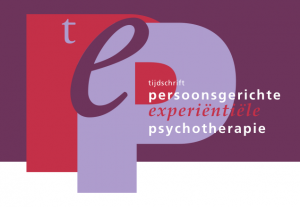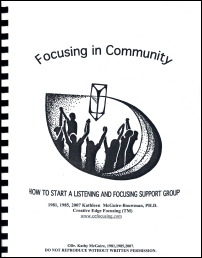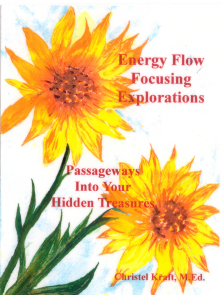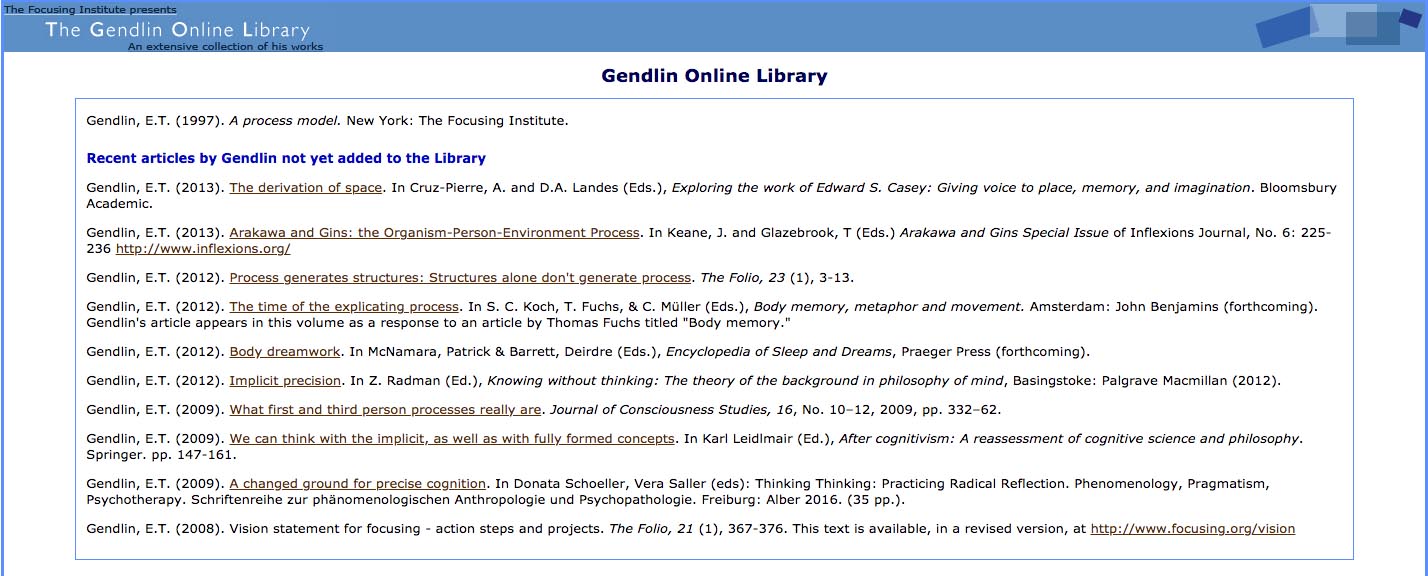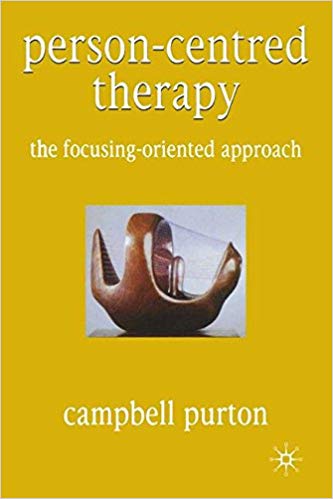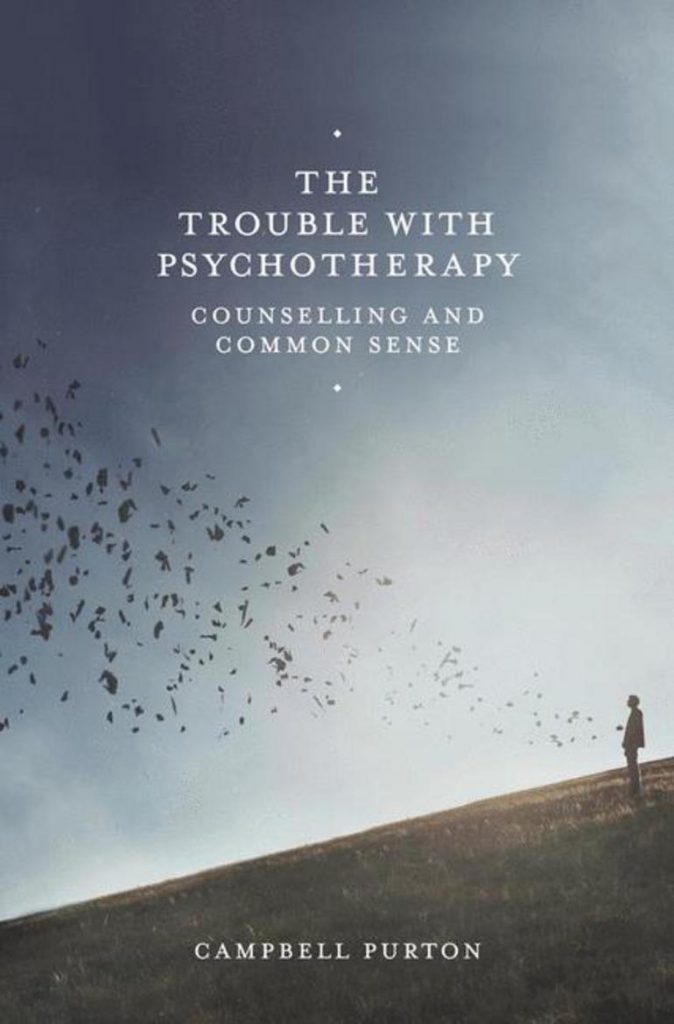Description: BioSpiritual Focusing – BSF
Why BioSpiritual Focusing?
The Campbell/McMahon Library
This library is intended to be a resource for your further exploration of BioSpiritual Focusing. The materials contained in this library are free and can be read online or downloaded for your personal use. Presenters are free to use these materials as well in their programs. The BioSpiritual Institute retains copyrights on all these materials and does not allow the sale of these materials in any format, written or electronic, by any individual or organization for profit.
https://www.biospiritual.org/the-campbellmcmahon-library/
—Rev. Peter A. Campbell, Ph.D. and Rev. Edwin M. McMahon, Ph.D.
Related Projects
Description: Wholebody Focusing – WBF
What is Wholebody Focusing?
Wholebody focusing could be described as a step-by-step discovery process exploring the resources that we have deep within us, to inform us on who or what we are and what we need to complete ourselves. Something in us knows it is all there, always has been, just waiting to be discovered. We try so hard until we stop, and then something happens that is beyond us, like a gift or grace; in my own experience are these words “when a part of me feels heard, it awakens to its own healing.”
Karen Whalen and Kevin McEvenue began this remarkable Focusing Partnership many years ago and created a whole new Wholebody Focusing experience, “Exploring the Transformative Power of the Body Wisdom.”
Wholebody Focusing: What is it?
Wholebody Focusing is a natural process that invites the power of consciousness to awaken the inner wisdom of the living body, a knowing that is at the heart of every one of us. Beneath our conditioned and stressful patterns that are all too familiar to us, lies an inner wellspring of intelligence and vitality that knows how to unwind our stress and traumas and move forward our life situation. Wholebody Focusing offers us the resources we need to reconnect with this Body Wisdom, in order to reboot our particular life stoppages and to open us up to the fullness of ourselves.
Foundation of the Wholebody Focusing Manual, Karen Whalen & Kevin McEvenue
Related Projects
General Articles about Focusing
Focusing Eugene T. Gendlin, founder of Focusing, talks with Linda Heuman (tricycle magazine)
Don’t Go It Alone The Power of Focusing Partnerships, by Joan Klagsbrun and Lynn Preston
…
…
Articles by Frans Depestele
Frans Depestele: articles with links to the internet (for the website of the European Focusing Association)
Frans Depestele (7/11/2018)
Depestele, F. (1995). Gevoelde zin: een Nederlandse vertaling voor ‘felt sense’ [Gevoelde zin: A Dutch translation of ‘felt sense’]. Tijdschrift voor Cliëntgerichte Psychotherapie, 33(1), 3-16. Available at https://www.tpep.nl/download/12
Depestele, F. (2000). De therapeutische ruimte(n) vanuit experiëntieel perspectief [The therapeutic space(s) from the experiential perspective]. Tijdschrift Cliëntgerichte Psychotherapie, 38 (4), 237-262 & 321. Available at http://www.focusing.org/therarui-publicatietekst.html
Abstract: The therapeutic space(s) from the experiential perspective
From the experiential perspective the important therapeutic factors may be described in a coherent whole of distinct spaces. The client makes with the therapist a relationship space, from which develops a space of reflecting directedness to the experiential level. This makes possible the focusing space and from there on the symbolization space, the heart of the change process. The therapeutic spaces are preceded by the pathological ‘space’ (fixation), and sometimes they’re leading to the self-symbolization space (creativity). All together they form a scheme of experiential psychotherapy. The scheme can integrate essential elements of the psychoanalytic, the behavioral and the systemic therapies. Also it can differentiate; what a silence is, how experiencing is, what words can do with experiencing, and so on, is different in each space.
Depestele, F. (2002). Experiëntiële aspecten van psychotherapie [Experiential aspects of psychotherapy]. PsychoPraxis, 4(5), 200-204. Available at https://dokumen.tips/documents/experientiele-aspecten-van-psychotherapie.html
Abstract: Language in the practice of experiential psychotherapy
Departing from a scheme that differentiates in five spaces what happens in experiential psychotherapy, the client’s different modes of speaking are investigated. We are able to give a place in the scheme to the client’s rhetorical speaking as well as to his poetical speaking. In particular, we are able to understand the prototypical place of the figures of thought on the one hand (rhetorics), and of the tropes and word figures on the other hand (poetics). By examples from practice we show how one can work fruitfully with these special phrases.
Depestele, F. (2005). Integratie in de beleving [Integration into the experiencing]. Tijdschrift Cliëntgerichte Psychotherapie, 43 (4), 245-270. Available at https://www.tpep.nl/download/755
Abstract: Integration into the experiencing
In experiential psychotherapy the inner work of the client is essential. It is crucial that the client, with the help of the therapist, can come from manipulating an experiencing (unfree reflecting) to letting speak freely all aspects of that experiencing (free reflecting). The free reflecting is the space where aspects of the client’s problematic way of being, as these revealed themselves for example in the relationship with the therapist, are worked through and integrated, if necessary after a focusing- and symbolization-moment. In this way it becomes the drive shaft of the whole change process, and the place where the self finds its basis (again). This hypothesis is elaborated theoretically and practically.
Depestele, F. (2008a). Grenzen in psychotherapie: hoe vormt het therapieproces zijn bedding? (Deel I) [Boundaries in psychotherapy: How does the therapy process form its bed? (Part I)]. Tijdschrift Cliëntgerichte Psychotherapie, 46 (3), 193-210. Available at https://www.tpep.nl/download/1854
Abstract: Boundaries in psychotherapy: How does the therapy process form its bed? (Part I)
Boundaries in psychotherapy can be considered from the idea that the therapy process itself searches its own boundaries in order to create the spaces within which it can develop. Therapy can be conceived as a process that develops in a number of consecutive spaces (Depestele, 2000; 2004). In this first of two articles we see how client and therapist first of all create a relationship space. Within the relationship space much can happen therapeutically – in an implicit as well as an explicit way – because various aspects of a common relationship are excluded. Certain inherent boundaries within the relationship space will open the way to the deeper spaces within which the client can let his experiencing further evolve (see second article: Depestele, 2008b).
Depestele, F. (2008b). Grenzen in psychotherapie: hoe vormt het therapieproces zijn bedding? (Deel II) [Boundaries in psychotherapy: How does the therapy process form its bed? (Part I)]. Tijdschrift Cliëntgerichte Psychotherapie, 46 (4), 287-295. Available at https://www.tpep.nl/download/1855
Abstract: Boundaries in psychotherapy: How does the therapy process form its bed? (Part II)
Boundaries in psychotherapy can be considered from the idea that the therapy process itself searches its own boundaries in order to create the spaces within which it can develop. Therapy can be conceived as a process that develops in a number of consecutive spaces (Depestele, 2000; 2004). In the first of two articles (Depestele, 2008a) we followed how client and therapist create a relationship space, and how boundaries play a vital part with that. In this second article we follow, also on the basis of examples, how certain inherent boundaries within each of these spaces, allow the client to let evolve further his experiencing.
Depestele, F. (2009). Verandering in therapie via subliminale uitwisselingen tussen cliënt en therapeut [Change in therapy via subliminal exchanges between client and therapist]. Tijdschrift Cliëntgerichte Psychotherapie, 47 (4), 288-302. Available at https://www.tpep.nl/download/1917
Abstract: Change in therapy via subliminal exchanges between client and therapist
In this article the dimension of mutual influence in the therapeutic relationship is discussed. This influence occurs while client and therapist are not aware of it, by verbal and nonverbal, bodily pathways, and via small relational moves. Interactional mismatching may bring in unexpected new elements, while interactional matching may result in new implicit relational knowing, i.e. knowing-how-to-be-with-someone that is functioning on a nonconscious level. The repertory of ways-of-being-with-someone may be expanded and possible relational moves which were blocked or undeveloped may be cured.
Depestele, F. (2011; 19811). Gendlins theorie van het ervaringsproces [Gendlins theory of the experiencing process]. Available at https://www.focusing.org/nl/gendlins_theorie_van_het_ervaringsproces_0.pdf
(1) This text is a summary of Gendlin’s work until 1980.
Depestele, F. (2012). Making therapy experiential: On the practice of integrating focusing in psychotherapy. Paper presented at the 24th International Focusing Conference, June 6-10, 2012, RCT Vacation and Spa Club, Chapadmalal, Mar del Plata, Buenos Aires Province, Argentina. Available at http://www.focusing.org/fot/Making-therapy-experiential-Edited-version.pdf
Translated into Spanish by Dominique Laplacette & Nora Viacava (2012): Cómo hacer la Terapia Experiencial: En la práctica de integrar Focusing a la Psicoterapia. Available at http://www.focusing.org/fot/Como-hacer-la-Terapia-Experiencial-fd.pdf
Depestele, F. (2013). How to make therapy experiential when the client is far from the experiential level. Paper presented at the 25th International Focusing Conference, May 29 – June 2, 2013. Lucerne, Switzerland. Available at http://www.focusing.org/fot/How-to-make-therapy-experiential-Edited-version-Depestele-2013.pdf
Depestele, F. (2014). Experiential psychotherapy consists of three therapeutic relationships. Paper presented at the Third International Conference On Focusing-Oriented Psychotherapies, May 15-18, 2014, Stony Point Center, Stony Point, New York. Available at http://www.focusing.org/fot/Experiential-psychotherapy-consists-of-three-therapeutic-relationships-Edited-version.pdf
Depestele, F. (2018). A process theory of physical illness: medicine and psychotherapy (onder deze titel beschikbaar op het internet). Paper presented at the First European Focusing Conference, May 10-14, 2018; Loutraki, Greece. Available at https://efa2018.weebly.com/uploads/1/1/4/8/114819733/a_process_theory_of_physical_illness.pdf
Articles by Campbell Purton
Campbell Purton – Publications
By topic: Buddhism | Counselling & Psychotherapy | Focusing | Philosophy
By date:
2018 A new way of thinking about Focusing
2017 Buddhism, meditation and ‘the inner world’.
2016 Why the dodo got it right. Therapy Today
2014 Wittgenstein and the expression of feelings in psychotherapy
2014 Book: The Trouble With Psychotherapy: Counselling and Common Sense. Basingstoke: Palgrave Macmillan
2012 ‘Focusing-oriented therapy’. In P. Sanders (ed.) The Tribes of the Person-Centred Nation’. Ross-on-Wye: PCCS Books (2nd edition).
2011 The notion of the implicit in the philosophy of psychotherapy … Japanese translation
2010 Focusing and Buddhist meditation
2009 Theory construction in TAE
2009 Focusing-oriented therapy and Hua Yan philosophy
2007 Book: The Focusing-Oriented Counselling Primer. Ross-on-Wye: PCCS Books … also in Chinese and Japanese
2007 How self-awareness arises from sentience: Mead and Gendlin
2006 When is the dream-time?
2006 Focusing and relational depth
2005 Buddhism and the psychotherapy of Eugene Gendlin
2004 Book: Person-Centred Therapy: The Focusing-Oriented Approach. Basingstoke: Palgrave Macmillan. … also in Japanese and Greek
2004 Differential response, diagnosis and the philosophy of the implicit
2002 Person-centred therapy without the core conditions
2002 Focusing on focusing
2002 A brief guide to Experiencing and the Creation of Meaning – …German translation
2000-2004 Ethology and Gendlin’s A Process Model
2000-2004 A brief guide to A Process Model – …German translation
2000 Talking of parts
2000 Introjection and the aliens within
2000 Empathising with shame and guilt
2000 All the world’s a stage: reflections on the two levels of truth
1999 Attachment and emotion
1998 Unconditional positive regard and its spiritual implications
1998 Psychotherapy, philosophical privacy and knowing what we feel
1996 The deep structure of the core conditions
1996 A minimal view of karma
1993 Philosophy and counselling
1992 Wittgenstein and pictures of rebirth
1991 Selection and assessment in counsellor training courses
1989 The person-centred Jungian
1979 Agent determination and free will
1979 Biological function
1978 Ethological categories of behaviour and some consequences of their conflation
Articles by Mia Leijssen
Mia Leijssen: publications available online
2015
Leijssen, M. (2015). Cliëntgerichte psychotherapie: update van een veelzijdige experiëntiële benadering.Tijdschrift Klinische Psychologie, 45/2, pp. 98-113. link
Leijssen, M. (2015). World Congress for Existential Therapy ‘Freedom, Responsibility and the Meaning of Being’.Congresverslag in Tijdschrift Cliëntgerichte Psychotherapie. Jaargang 53, nr.3, 248-253. link
2014
Leijssen, M. (2014). Dankbaarheid, een boost voor je welzijn. In: Veel geluk. Het grote geluksonderzoek. Lannoo. Pp123-135link
Leijssen, M. (2014). Existentieel welzijn bij ouderen. Handleidingen. Tijdschrift voor praktische theologie en religiewetenschappen. 2014/4. Pp.5-13 link
Leijssen, M. (2014). Existential wellbeing counselling. In Madison, G. (Ed). Emerging Practice in Focusing- Oriented Psychotherapy. Innovatie Theory, Applications and Practice. London: Jessica Kingsley Publishers. 142-157. link
2013
Leijssen, M. (2013). Leven vanuit liefde. Een pad naar existentieel welzijn. Tielt: Lannoo. link
Leijssen, M. (2013). Existentieel trauma Tijdschrift Klinische Psychologie, 43(3), 169-175. link
Stinckens, N., Lietaer, G., & Leijssen, M (2013). Working with the inner critic: Process features and pathways to change. Person-Centered & Experiential Psychotherapies, Vol.12(1), p.59-78. link
Stinckens, N., Lietaer, G., & Leijssen, M (2013). Working with the inner critic: Therapeutic approach. Person-Centered & Experiential Psychotherapies, Vol.12(2), p.141-156. link
2012
Leijssen, M. (2012). Liefde in tijden van evidencebased behandelingen. Tijdschrift Klinische Psychologie 42ste jaargang nr. 3 juli-september 2012, 164-172. link
Leijssen, M. (2012). Liegen in therapie: de ondraaglijke zwaarte van eerlijkheid. Tijdschrift Klinische Psychologie 42ste jaargang nr. 4 oktober-december 2012, 214-221. link
2011
Leijssen, M. (2011). Met de ziel onder de arm. Tijdschrift Klinische Psychologie 1ste jaargang nr. 2 april-juni 2011, 129-132. link
2009
Leijssen, M. (2009). Palliatieve zorg als tijd voor de ziel. Nederlands Tijdschrift voor Palliatieve Zorg, 2, 30-36. link
Leijssen, M. (2009). Psychotherapie als tijd voor de ziel. PsychoPraxis, 11(2), 56-60. link
Leijssen, M. (2009). Weerwoord op het forumartikel (Spiritualiteit in cliëntgericht-experiëntiële psychotherapie: commentaren naar aanleiding van een e-maildiscussie.). Tijdschrift Cliëntgerichte Psychotherapie, 47(4), 318-323. link
Leijssen, M. (2009). Psychotherapy as search and care for the soul. Person-Centered & Experiential Psychotherapies, 8(1), 18-32. link
2008
Schnellbacher, J., & Leijssen, M. (2008). The significance of therapist genuineness from the client’s perspective. Journal of Humanistic Psychology OnlineFirst, published on October 8, 2008 as:http://jhp.sagepub.com/cgi/rapidpdf/0022167808323601v1
Leijssen, M. (2008). Encountering the sacred: Person-centered therapy as a spiritual practice. Person-Centered and Experiential Psychotherapies, 7(3), 218-225. link
Schnellbacher, J., & Leijssen, M. (2008). Kenmerken van helpende zelfonthulling. Een kwalitatief onderzoek naar de cliëntbeleving van zelfonthulling van de therapeut. Tijdschrift voor Psychotherapie, 34(1), 27-44. link
Leijssen, M., & Elliott, R. (2008). Integrative experiential psychotherapy in brief. In K. Tudor, Brief person-centred therapies (pp. 31-46). London: Sage. link
2007
Leijssen, M. (2007). Tijd voor de ziel. Tielt: Lannoo. Hieruit een Hoofdstuk (pp.99-142): Focussen als innerlijk luisteren. link
Leijssen, M. (2007). Making space for the inner guide. Theme issue: How Do You Do Experiential Psychotherapy? American Journal of psychotherapy, 61(3), 255-270. link
Leijssen, M. (2007). Coping with fear in short term experiential psychotherapy. The Folio, 20(1), Revised Edition. link
Leijssen, M. (2007). Geheimen: een waaier van betekenissen. Tijdschrift voor psychiatrie, 49(6), 391-392. link
2006
Leijssen, M. (2006). Validation of the body in psychotherapy. Journal of Humanistic Psychology. 46, 2, 126-146. link
Leijssen, M. (2006). Kortdurende cliëntgerichte psychotherapie. Tijdschrift Cliëntgerichte Psychotherapie, 44(1), 19-31. link
Leijssen, M., & Stinckens, N. (2006). Cliëntgerichte psychotherapie. In W. Vandereycken, C. A. L. Hoogduin, & P. M. G. Emmelkamp (eds.), Handboek psychopathologie, deel 2, Klinische praktijk (3de druk), (pp. 133-147). Houten: Bohn, Stafleu van Loghum. link
2005
Leijssen, M. (2005). Gids beroepsethiek. Leuven: Acco. Hieruit een Hoofdstuk (pp.119-134): Verantwoordelijkheid. link
2004
Leijssen, M. (2004). Empathie als instrument voor effectieve geneeskunde. In M. Leijssen & N. Stinckens, Wijsheid in gesprekstherapie (pp. 313-332). Leuven: Universitaire Pers Leuven. link
Leijssen, M. (2004). Zingeving en zingevingproblemen vanuit psychologisch perspectief. InWetenschappelijk denken: een laboratorium voor morgen? Lessen voor de eenentwintigste eeuw (pp. 241-268). Leuven: Universitaire Pers Leuven. link
Leijssen, M. (2004). In R. I. Rosner, W. J. Lyddon, & A. Freeman (Eds.), Cognitive therapy and dreams (pp. 137-160). New York: Springer Publishing Company. link
2003
Leijssen, M. (2003). Noodzakelijke bagage voor hedendaagse counseling. Facultatief, 31 (1), 2-11.link
Leijssen, M., & Adriaensen, H. (2003). Echtheid in cliëntgerichte therapie, geïllustreerd bij een cliënt met een persoonlijkheidsstoornis. Tijdschrift voor Psychotherapie, 29(1), 25-51. link
2001
Leijssen, M. (2001). Beroepsethiek. In W. Trijsburg, S. Colijn, E. Collumbien, & G. Lietaer, (Red.),Handboek Integratieve Psychotherapie (pp. VIII 5-1 – VIII 5-50). link
Leijssen, M. (2001). Lichaamsgerichte interventies in de psychotherapeutische hulpverlening: Waardevol en ethisch verantwoord ? Maandblad Geestelijke volksgezondheid, 2001(3), 195-217. link
2000
Leijssen, M. (2000). Focusing: een krachtige methode om jezelf te ontwikkelen en te helen.Psychologie Magazine, 19, 70-71. link
Leijssen, M. (2000). Het ethos van de hulpverlener. In J. Graste & D. Bauduin (Red.), Waardenvol werk. Ethiek in de geestelijke gezondheidszorg (pp. 78-93). Assen: Van Gorcum. link
Leijssen, M. (2000). Die Stärken und Grenzen von Focusing: einige Forschungsergebnisse. In H.-J. Feuerstein, D. Müller, & A. Weiser-Cornell (Eds.), Focusing im Prozess. Ein Lesebuch (pp.217-226). GwG-Verlag. English version: THE POWER AND LIMITATIONS OF FOCUSING: A FEW RESEARCH FINDINGS. link
Before 2000
Leijssen, M. (1998). De therapeut. In W. Trijsburg, S. Colijn, G. Lietaer, & E. Collumbien (Red.),Handboek Integratieve Psychotherapie (pp. I 2.1-1-I.2.1-37). Maarssen: Elsevier/De Tijdstroom. link
Leijssen, M. (1998). Focusing microprocesses. In L. S. Greenberg, G. Lietaer, & J. Watson (Eds.),Handbook of experiential psychotherapy (pp. 121-154). New York: Guilford. link
Leijssen, M. (1998). Focusing: interpersonal and intrapersonal conditions of growth. in: B.Thorne & E.Lambers (eds). (1998). Person-Centred Therapy: a European Perspective. 131-158, London, Sage Publications. link
Leijssen, M. (1995). Gids voor gesprekstherapie. Utrecht: De Tijdstroom. Hieruit een deel van Hoofdstuk (pp. 131-169): Innerlijke relatie en Focusingproces. link
Leijssen, M. (1995). Kenmerken van een helende innerlijke relatie. In G. Lietaer & M. van Kalmthout (Red.), Praktijkboek Gesprekspsychotherapie (pp. 25-37). Utrecht: De Tijdstroom. link
Leijssen, M. (1993). Creating a workable distance to overwhelming images. In D. Brazier (Ed.),Beyond Carl Rogers: Towards a psychotherapy for the twenty-first century (pp. 129-148). London: Constable. link
Leijssen, M. (1992). Experiential focusing through drawing. Focusing Folio, Fall 1992, 35-40. link
Leijssen, M. (1991). Focusing in therapie. In J. C. A. G. Swildens, O. de Haas, G. Lietaer, & R. Van Balen (Eds.). Leerboek gesprekstherapie. De cliëntgerichte benadering (pp. 195-221). Leuven/Amersfoort: Acco. link
Leijssen, M. (1990). On focusing and the necessary conditions of therapeutic personality change. In G. Lietaer, J. Rombauts, & R. Van Balen (Eds.). (1990). Client-centered and experiential psychotherapy in the nineties (pp. 225-250). Leuven: University Press. link
Leijssen, M. (1989). Focusing als specificering van de Rogeriaanse grondhoudingen. In H. Vertommen, G. Cluckers, & G. Lietaer (Eds.), De relatie in therapie (pp. 121-145). Leuven: Universitaire Pers. link
Leijssen, M., & Roelens, L. (1988). Herstel van contactfuncties bij zwaar gestoorde patiënten door middel van Prouty’s pre-therapie. Tijdschrift Klinische Psychologie, 18, 21-34. link
Leijssen, M. (1986). Moeilijkheden met focusing: studie van therapiefragmenten. In R. Van Balen, M. Leijssen, & G. Lietaer (Eds.), Droom en werkelijkheid in client-centered psychotherapie (pp. 151-179). Leuven/Amersfoort: Acco. link
Leijssen, M. (1984). Focusing in de praktijk van client-centered therapie. In G. Lietaer, Ph. h. van Praag, & J. C. A. G. Swildens (Eds.), Client-centered psychotherapie in beweging (pp. 397-427). Leuven: Acco. link
Articles about Thinking At the Edge (TAE)
Article 1
Article 2
Article 3
Article 1
Article 2
Article 3
Article 1
Article 2
Article 3
Find below the Dutch translation of the TAE steps (open for public view and download)
Gendlin, E. & Hendricks, M. (2018) Thinking At the Edge (TAE) stappen. Vertaald door Swyngedouw, T.
Gendlin, E. & Hendricks, M. (2004) Thinking At the Edge (TAE) stappen. (Swyngedouw, T., 2018, Vert.) The Folio. A Journal for Focusing and Experiential Therapy. Vol. 19, No.1, pp. 12-24.
and an article about TAE for the journal for experiential therapists
tPeP: tijdschrift Persoonsgerichte experiëntiële Psychotherapie
about TAE
Swyngedouw, T. (2018) TAE – Thinking At the Edge. tPeP, 56, 3, 153 – 166.
by Tine Swyngedouw
Links to the article (tPeP)
https://www.tpep.nl/artikel/2362/
https://www.tpep.nl/en/article/2362/
Links to translations (by Tine Swyngedouw)
https://efocusing.be/view/blog/mijn-vertalingen
Tine Swyngedouw
Focusingcoördinator
3010 Kessel-Lo
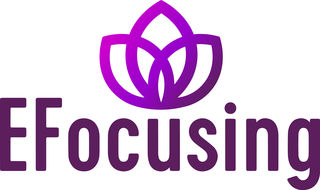
Articles about Children Focusing
Helping children (and adults) to find their inner home
The Folio, a journal for focusing and experiential therapy, XXVI
(English, by Tine Swyngedouw, 2015)
Stapert, Marta (1997)
Focusing in school
In: Reader from Children’s Focusing Corner, The Folio, Vol.16, nr.1-2, 1997
Stapert, Marta (1997)
Children Focusing: Guiding and Teaching Children to Focus
In: Reader from Children’s Focusing Corner
Articles about Focusing-Oriented Therapy
Greg Madison
(2004) ‘Focusing-Oriented Supervision’ inFreedom to Practice Tudor and M. Worrall, Eds. London: PCCS Books
Focusing-Supervision.pdf
(2011) Madison, G & Gendlin, ET. ‘Palpable Existentialism: An Interview with Eugene Gendlin.’ In Existential Therapy. Barnett & Madison (Eds.)
GMEGexcerpt.pdf
(2012) Madison, G.’Let your body be your coach‘. In Existential Perspectives on Coaching Emmy van Deurzen & Monica Hanaway
LetYourBody.pdf
(2010)Focusing on Existence: Five facets of an experiential-existential mode Person-Centred and Experiential Psychotherapies Vol 9 (3): 189-204.
PCEP9_3Madison.pdf
More Articles about Focusing and its Applications
1st European Focusing Conference, Loutraki, Greece, May 2018
A new way of thinking about Focusing (A new approach to understanding Focusing)
by Campbell Purton
Beyond Rogers, beyond Gendlin: widening our understanding of the theory
by Christiane Geiser & Judy Moore
Presentation, Research Implications from Focusing With Music
by Jenny White
Focusing, Critical Theory and New Materialism
(Pavlos’ introduction)
by Pavlos Zarogiannis, Nikolaos Kypriotakis
Living forward. The challenge of carrying forward Gendlin’s legacy.
by Mia Leijssen PhD (& Presentation)
& Presentation from the Workshop: Existential Wellbeing Counseling
Felt Sense – a beautiful yet misleading term
by Donata Schoeller (& Presentation)
(The article is no longer available)
(It has been revised and completed for publication)
The Art of Feeling Whole
(Workshop Handout) by Ifat Eckstein
A process theory of physical illness:medicine and psychotherapy
by Frans Depestele
Upscaling Focusing: Can we take an individual practice as a template for social and community organising?
(Workshop notes) by Greg Madison
Presentation, … But Focusing implies a regression
by MEG (Maria Emanuela Galanti)
Eigentlichkeit (owned-ness/authenticity) and therapy with an uninvited guest
by Alan Tidmarsh PhD
Building Inner Strengths to Heal Your Inner Critic
(IC Handout) by Ruth Hircsh
FACING YOUR EXISTENTIAL DEMONS: Experiential workshop on focusing from your safe place
(Workshop Presentation/Handout) by Claude Missiaen
Media for Jenny White’s Presentation
Sound 1 is to begin the presentation with…
The use of the media above is only for educational reasons, and not for commercial use.
Here are the same links on YouTube #
Hungarian Rhapsody: www.youtube.com/watch?v=LdH1hSWGFGU
Close Encounters: https://www.youtube.com/watch?v=AphKxQ2NsQo
Curwen Hand signals, Close Encounters: https://www.youtube.com/watch?v=ubmcr5FmkRU
Saint-Saens Carnival of the Animals, Aquarium: https://www.youtube.com/watch?v=_sN3Xmnd5cs
Sufjan Stevens Casimir Pulaski Day (Paradox): https://www.youtube.com/watch?v=9EzeW5KoPUI
Videos from the 1st European Focusing Conference “Facets of Focusing”
More Videos
Publications
tPeP Journal in Dutch/Flemish (and some English)
The tPeP (Journal for Client-centered Psychotherapy) is the scientific journal for Dutch and Flemish
psychotherapists, psychologists, and psychiatrists, that work from, or are interested in a client-centered perspective.
The tijdschrift Persoonsgerichte Experiëntiële Psychotherapie (tPeP) is the journal
of the Society for Person Centered & Experiential Psychotherapy (VPEP)
and the Flemish Society for Client-Centered/Experiential Psychotherapy and Counseling (VVCEPC).
Here you can find many open-access articles
(Process-oriented, Existential, Interactional, Integrative)
Revista en-foco (online magazine - Spain)
The BFA Newsletters
The Folio (from TIFI)
Free Download of
LANGUAGE PROCESS NOTES
USING WORDS TO GET BEYOND WORDS
by Harbert Rice
link
Free Download of
FOCUSING IN COMMUNITY:
How To Start A Listening and Focusing Support Group
Dr. Kathy McGuire
link
Free Download of
Energy Flow Focusing Explorations:
Passageways Into Your Hidden Treasures
by Christel Kraft, M. Ed.
link
Recommended Books
|
Downloads: |
Downloads: |
by Campbell Purton
more
by Greg Madison
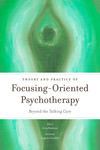 |
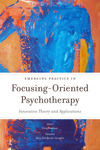 |
Two new texts on Focusing-Oriented Psychotherapy, Greg Madison (Ed.) Jessica Kingsley Publications, London/New York.
Theory and Practice of Focusing-Oriented Psychotherapy. Beyond the Talking Cure
Emerging Practice in Focusing-Oriented Psychotherapy. Innovative Theory and Applications
These comprehensive introductions to Focusing-Oriented Psychotherapy lay out the background and fundamentals of the approach covering theory and practice. The books are essential reading for all practicing therapists and counselors, as well as trainee therapists, particularly those who want to explore the potential of experiential dimensions in their therapy and coaching practice. In addition, Emerging Practice in Focusing-Oriented Psychotherapy brings together some of the world’s most influential contemporary psychotherapists in the field to look at the future of Focusing-oriented approaches. Topics covered include trauma, neuroscience, mindfulness, short-term therapy, couples and group approaches… Both texts are now available from Amazon and other booksellers internationally.
Theses and Dissertations
via UEA Digital Repository
Felt senses of self and no-self in therapy
Luczaj, Sarah (2015) Felt senses of self and no-self in therapy. Doctoral thesis, University of East Anglia.
| PDF Download (1010kB) |
Abstract
The thesis develops Gendlin’s concept of the felt sense in two directions, and introduces parallel concepts of self. It starts by examining western and eastern cultural contexts, neuroscientific conceptualisations and linguistic issues as they relate to self, using the lens of Gendlin’s two ways of relating to the world – interpreting according to the unit model and thinking beyond patterns, to point out conceptual confusions. Buddhist philosophy and practice are discussed as methods of undoing such conceptual confusions in order to relieve suffering, with self as an independent, stable, substantial entity being the primary example of such a confusion. Dualism is identified as the basic misconception from which suffering ensues. Non-duality is investigated as a spiritual endstate, an integral part of the goals of humanistic therapies and an intrinsic element in ‘carrying forward’, then compared with Gendlin’s implicit intricacy, Sartre’s Being-in-itself and intersubjective theories. A small qualitative study investigates what happens when felt senses of self are intentionally produced or accessed by focusing. A continuum of experiences is described, ranging from self to no-self, with trauma proving a major block to both self and no-self experiencings. The felt sense is re-defined in two ways, as an extending boundary and as a direct referent. A sense of self is also considered both as a boundary drawing exercise, and a direct referent. Self may function in either of these forms on a relative level, constructively or destructively, according to circumstances and conditions, while on an ontological level no such single entity may be proven to exist. The conclusion is drawn that self and no-self form a kind of twisting human thread, which shows, at any one moment, just one side of a duality. These sides are conceptually, rather than actually, distinct.
An exploration of Focusing-oriented Therapy for Addictions
Tidmarsh, Alan (2013) An exploration of Focusing-oriented Therapy for Addictions. Doctoral thesis, University of East Anglia.
| PDF Download (3326kB) |
Abstract
This study aims to provide the first systematic explication of focusing-oriented therapy for clients with addiction. It begins with basic principles from the Philosophy of the Implicit – experience, interaction, focaling and carrying forward – outlining their significance in psychopathology and therapy. General focusingoriented therapy is examined in terms of five client tasks and four therapist responses. A focusing-oriented view of addiction is then developed in terms of phenomena that, socially and personally, deal with unacceptable experience through ‘process-skipping, ‘flailing’ and the use of a ‘carapace.’ Three core tasks of focusing-oriented therapy for recovery are proposed. These help a client stand aside from the addictive carapace, carry forward underlying existential dilemmas and discover a new way of being-in-the-world. Five further recovery ‘avenues’ are identified using experiential aspects of mainstream treatments for addiction and experiential recovery tasks are suggested for them. These understandings of addiction and focusing-oriented therapy for recovery are illustrated in two substantial case studies of therapy in a mainstream drug and alcohol treatment agency. Proposals are made suggesting a greater significance for experiential therapy in addiction treatment.
A Phenomenological Enquiry into Focusing on Music
White, Jenny (2017) A Phenomenological Enquiry into Focusing on Music. Doctoral thesis, University of East Anglia.
| PDF Download (2592kB) |
Abstract
This thesis develops the findings of my MA research and presents a phenomenological enquiry into the experiencing involved in focusing on music. It carries forward the notion that music can hold implicit meaning in what Eugene Gendlin, creator of focusing, terms as a “felt sense”. It asks participants to select music that says something about how they are feeling right now in order to establish if focusing on personally selected relevant music can unravel implicit experiencing. Music experiencing is further investigated by a semi-structured interview with the composer of one of the participants’ pieces of music.
The Literature Review explores further avenues into research on music emotions and feeling including neuroscience and quantitative research into music and sadness. In Methodology, Gendlin’s Philosophy of the Implicit is positioned against the background of phenomenological philosophy including William James and Merleau-Ponty, providing an account of the formation of the Experiencing Scale and how it can contribute a further phenomenological layer to the analytical tool Interpretative Phenomenological Analysis. This approach is presented in the Analysis section, which produces the main themes of the research alongside observations from the Experiencing Scale. The Discussion chapter explores the analysis from the theoretical perspectives gathered in the Literature Review, particularly through Philosophy of the Implicit and Gendlin’s philosophical treatise: A Process Model. The thesis concludes with an opportunity to conceptualize music by thinking further with Gendlin’s concepts.
Introducing a modification of person centred counselling for depressed clients in the state of Qatar
Al-Thani, Aisha (2010) Introducing a modification of person centred counselling for depressed clients in the state of Qatar. Doctoral thesis, University of East Anglia.
| PDF Download (106kB) |
| PDF Download (1298kB) |
| PDF Download (4MB) |
The Clinical Effectiveness of the Person-Centred Psychotherapies: The Impact of the Therapeutic Relationship
Weston, Tony (2011) The Clinical Effectiveness of the Person-Centred Psychotherapies: The Impact of the Therapeutic Relationship. Doctoral thesis, University of East Anglia,.
| PDF Download (3531kB) |
The focusing-oriented approach applied to couple therapy
An, Kimin (2012) The focusing-oriented approach applied to couple therapy. Doctoral thesis, University of East Anglia.
| PDF Download (3189kB) |
Abstract
Many couple therapists prefer an integrative approach to working with couples. They also have shown more interest in the humanistic approach in recent times than they used to do in the past. However there has been almost no discussion in the literature of how the focusing-oriented approach can be used in couple therapy, probably because most focusing-oriented therapists remain individual counsellors. The present research is a contribution to bringing the focusing-oriented approach into couple therapy, but is also a contribution to the integrative approach to working with couples. The aims of this research are:
1. To examine how couple therapists usually work with couples.
2. To investigate how widespread the use of the focusing-oriented approach is as a therapeutic approach when working with couples.
3. To explore what are seen as the common factors of therapeutic change in standard couple therapy and in focusing-oriented psychotherapy.
4. To examine what elements of focusing-oriented therapy can be brought into couple therapy.
5. To ascertain whether there is any evidence for the focusing-oriented approach being effective in working with couples.
6. To discover how using the focusing-oriented approach can make a difference to couple therapy.
This research aims to demonstrate how the focusing-oriented approach can apply to couple therapy. With this end in view, the research for the thesis was conducted in three parts. Part One collected quantitative data about the extent to which focusing-oriented therapists are involved in working with couples and how couple therapists normally work with couples. Part Two observed and recorded focusing sessions with the Diploma students in focusing-oriented and experiential psychotherapy at the University of East Anglia for two years. The aim of this part of the research was to understand the focusing process and to find what elements of Focusing might apply to working with couples. Part Three involved interviews with fourteen counsellors. Seven counsellors worked with couples as couple therapists and the other seven counsellors were trained in the focusing-oriented approach and had experience of working with couples. The interviews and analysis revealed how they worked with couples, and what the possibilities are for integrating the focusing-oriented approach into couple therapy.
The creative dance of love and consciousness: an integral, phenomenological inquiry into the experiences of belonging and not-belonging
Magee, Anna (2014) The creative dance of love and consciousness: an integral, phenomenological inquiry into the experiences of belonging and not-belonging. Doctoral thesis, University of East Anglia.
| PDF Download (3144kB) |
Abstract
This is an Integral and Phenomenological Inquiry into the experiences of ‘belonging’ and ‘not-belonging’.
Using Wilber’s Integral Operating System and its AQAL model as a basis, the inquiry brings together the interior and exterior dimensions of individual and collective experiencing. With an emphasis on embodiment, its approach to method incorporates a Participatory axiology and leans upon Gendlin’s philosophy for its interpretative framework. The thesis considers some of the complex individual and social phenomena which are implicit to a sense of alienation and the behaviour of marginalisation, as well as those inherent to the movements of integration, healing and growth. Multiple methodologies combine to integrate evidence which reflects the four quadrants of the AQAL model. Included here is a Case Study of the social dynamics of a Norfolk town and the perceptions of ‘marginal’ groups within that community. Gendlin’s approach of ‘Thinking At the Edge’ is used, as well as individual and group contemplations which contribute to building the overall narrative of the thesis. Discourses of individual and community development, identity and consciousness are considered along with those of attachment, trauma and Gendlin’s idea of ‘stuck processes’.
Even with its inherent risks, in this thesis it becomes clear that the experience of not-belonging is as fundamental and vital to individual and collective development as is that of belonging. Our belonging and not-belonging are two protagonists in a grand narrative. Between them an essentially creative, evolutionary dynamic emerges – a dance between love and consciousness.
‘My soul needs to be washed’: an exploration of the basic encounter group in Japan
Mikuni, Makiko (2011) ‘My soul needs to be washed’: an exploration of the basic encounter group in Japan. Doctoral thesis, School of Education and Lifelong Learning.
| PDF Download (32MB) |
Abstract
In this thesis I explore through qualitative inquiry the development of the person-centred approach in Japan focussing on the encounter group movement. I look at how the approach was introduced to Japan after the Second World War, at how it became accepted and at the place it holds in Japanese life. The research began as I returned home to work as a counsellor after two years of counselling training in England. This thesis, therefore, tells the story of my process over eight years of inquiry, as a counsellor, facilitator and researcher. At the start of the research I wanted to look for ways of building bridges between the Japanese and the Western person-centred approach. This aim changed as I realised how difficult it was to be accepted by the Japanese person-centred world, because I had trained overseas, and how little I knew about the approach in Japan. So, as I began to facilitate and then to organise encounter groups, and to translate Western person-centred texts into Japanese, I collected data: from the Japanese person-centred literature; by interviews with counsellors, facilitators and members of encounter groups; through conversations with critical friends. In doing so I built the networks and bridges in Japan and beyond I had first hoped for. In the thesis I make links between how encounter groups were accepted by Japanese people and the way of being and concern for relations with others shown in Japanese culture, in the tea-ceremony and the Noh theatre. I show what characterises Japanese encounter groups, of the preference for traditional settings and the respect for hierarchy and seniority. I show how an encounter group is structured by the perceptions, experiences and theories of members and facilitators. In the aftermath of the earthquake and tsunami in March 2011 I explore how encounter groups might help in our recovery.
The Norfolk condition management programme: a retrospective evaluation
Roberts, Stephen (2017) The Norfolk condition management programme: a retrospective evaluation. Doctoral thesis, University of East Anglia.
| PDF Download (3359kB) |
Abstract
This thesis is an evaluation of the Norfolk Condition Management Programme (CMP). The CMP was the health-related component of Pathways to Work, the last Labour government’s flagship welfare to work initiative. The programme delivered condition-specific health advice for Incapacity Benefit claimants with mild to moderate mental health problems.
This theory-driven evaluation identifies an explicit programme logic based on seven stages: problem conception, programme concept, programme theory, implementation theory, programme delivery programme outputs and programme outcomes. Using quantitative and qualitative data (see below), the study identifies where CMP delivery deviated from explicit programme logic and the impact of this deviation on the effectiveness of the programme. The study found that the programme yielded positive clinical outcomes but failed to translate these into desired programme outcomes (participants relinquishing benefits and seeking work).
Quantitative data were obtained from Hospital Anxiety and Depressions Score, Occupational Self-Assessment, Work Confidence Questionnaire and predicted return to work timescale. Qualitative data were collected through exit and follow-up interviews with patients and practitioners. Interview transcripts were coded using Interpretative Phenomenological Analysis. This method identified causal mechanisms for change (or non-change) that were not stated explicitly by participants.
Case studies revealed unique formulations of factors maintaining each participant’s incapacity. HADS data indicated a weak association between health status and returning to work. Other measures, including increased confidence in ability to obtain work, revealed a stronger relationship. Health-specific advice could be regarded as helpful but only when accompanied by a decision to seek work.
Delivery of CMP sometimes deviated from explicit programme theory to reflect the interests and needs of group members. This appeared to encourage expression of participants’ experiences of receiving Incapacity Benefit. Group dynamics were seen to encourage reappraisal of benefit status and re-consideration of a decision to relinquish or remain on incapacity benefits.
Free Focusing MOOC
Free Online Focusing & PCE related MOOC
Explore existential themes in your personal and professional life. Develop strengths and counseling skills to improve your well-being and the well-being of others.
![]()
Description: Existential Well-being Counseling: A Person-centered Experiential Approach
Explore existential themes in your personal and professional life. Develop strengths and counseling skills to improve your well-being and the well-being of others.


About this course
via EdX
[…]
This course will teach you how to live fully as a human being, in this body, on this planet, while at the same time being conscious that you are just a small part of a vast, incomprehensible, universe.
Our experiential approach focuses on the innate wisdom of the human organism and our tendency to evolve in a forward-moving direction. You will learn how to become aware of this deeply felt knowledge by giving attention to your body as felt from the inside and to your emotions.
Our person-centered approach encourages building optimal human relationships through empathy, respect and authenticity. These are complex skills, which we will bring within your reach by means of simple exercises.
Through examples, role-play and video-demonstrations we will illustrate how you can apply our existential well-being approach in a variety of helping contexts, including counseling and psychotherapy. You will develop skills to embody the existential well-being approach as a person and as a professional.
Your learning will be enriched through exchanging thoughts and experiences with a diverse group of international participants. You will learn to notice how people from different cultures have different ideas about what it means to live well and meaningfully. You will engage in discussions where divergent values can be respectfully acknowledged. Your personal view of well-being will expand and deepen to a more universal perspective on what it means to be human.
This course is taught by instructors with decades of experience in existential psychotherapy, focusing-oriented and emotion-focused therapy, person-centered counseling and positive psychology.
The instructors are also teachers and researchers in the fields of psychotherapy, positive psychology, meaning and spirituality at KU Leuven, a prestigious European University.
This course offers you a high degree of flexibility. You can follow the content in sequence or choose to complete sections in order of interest to you. Be aware that it would be realistic to spend 6 to 8 hours on each section. The course will be available from October until the end of June and you can follow your own rhythm in studying and practicing what is offered in each section.
What you’ll learn
- Live meaningfully and make the best of different life situations
- Build optimal human relationships
- Focus on bodily felt wisdom
- Facilitate emotional, cognitive and behavioral change
- Improve counseling skills for different working contexts
Related Projects
Focusing Projects
…
In this section you will find information about several interesting Focusing Projects
… (find more later) …
Focusing and Research
PCE Articles/Research
Person Centred and Experiential Psychotherapy Scale (PCEPS):
Development and reliability of an adherence/competence measure for personcentred and experiential psychotherapies
Elizabeth Freire, Robert Elliott, and Graham Westwell
Abstract
Aims: This study aimed to assess the reliability of the Person Centred and Experiential Psychotherapy Scale (PCEPS), a new adherence/competence measure of person-centrEEFA websiteed and experiential psychotherapies. The PCEPS consists of 15 items with two subscales: Person Centred Process, and Experiential Process.
Method: One-hundred twenty audio-recorded segments of therapy sessions were rated independently by two teams of three raters using the PCEPS. Half of the segments were 10 min long and the other half were 15 min long. Six therapists were experienced therapists and four were counsellors in training. Seven of the therapists identified their work as ‘person-centred’, and three identifed their work as ‘process-experiential’. Three raters were qualified and experienced personcentred therapists and three raters were person-centred counselling trainees in their first year of training.
Results: Interrater reliabilities were good (alpha: .68 – .86), especially when ratings were averaged across items (alpha: .87); interitem reliabilities were quite high (alpha: .98). Exploratory factor analyses revealed a 12-item facilitative relationship factor that cuts across Person-centred and Experiential subscales (alpha: .98), and a nonfacilitative directiveness factor (3 items, alpha: .89).
Conclusions/Implications: The PCEPS has potential for use in RCT research as well as in counselling training and supervision, but will require further testing and validation.
Key-words: adherence/competence; person-centred therapy; experiential therapy; measure
Person-Centered/Experiential Psychotherapy for Anxiety Difficulties: Theory, Research and Practice
Robert Elliott, University of Strathclyde
Keywords: Anxiety, Person-Centered/Experiential therapy, outcome research
Note: This article is based on a presentation given at the conference of the World Association for Person-Centered and Experiential Psychotherapies, July 2012, in Antwerp Belgium. This research is based on was largely funded by grants from the New Professors Fund by the University of Strathclyde, the Counselling Unit at the University of Strathclyde, and the British Association for the Person-Centre Approach. I am deeply appreciative of the help I received in carrying out the research on which this article is based, including the clients, volunteer therapists, students, research associates, and members of the Social Anxiety Study Group, University of Strathclyde, 2006-2012, and especially my colleagues Brian Rodgers, Beth Freire, Susan Stephen, Lorna Carrick, Lucia Berdondini, and Mick Cooper. In addition, I thank Les Greenberg and Ann Weiser Cornell for their contributions to the theory sections of this article. Finally, I dedicate this article to the memory of my mother, Ann Helena Kearney Elliott, 7 April 1929 – 22 June 2012.
Please address requests for reprints to Robert Elliott, Counselling Unit, University of Strathclyde, Graham Hills Building, 40 George Street, Glasgow, G1 1QE, UK or email: fac0029@gmail.com.
Person-centred science: what we know and how we can learn more about experiential-humanistic psychotherapies
Robert Elliott
Invited address presented at the meeting of the American Psychological Association, Boston, MA, 2008
PersonScience.ppt
Crossing Focusing with (…)
In this section you will find information about several interesting ‘crossings’ of Focusing with (anything else)
Micro-phenomenology
Micro-phenomenology is a new scientific discipline that enables us to explore our lived experience very finely: what’s happening when an idea comes to us? When suddenly a childhood memory comes back? When we feel sad, or on the contrary elated? When we listen to a piece of music, or taste a good wine? When we read a novel, or write a letter? These phenomena, which constitute the very texture of our existence, are difficult to describe, and have thus far been excluded from scientific investigation. …
Geography Meets Gendlin
An Exploration of Disciplinary Potential through Artistic Practice
Authors: Banfield, Janet




